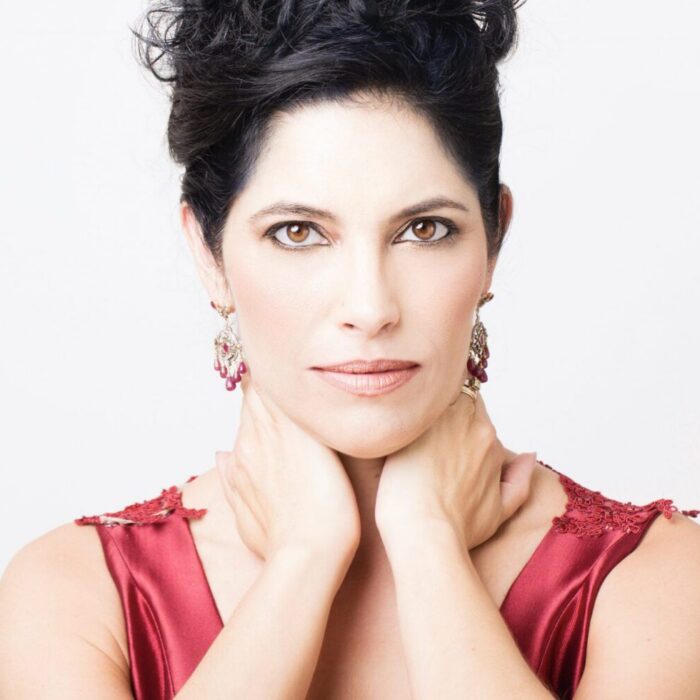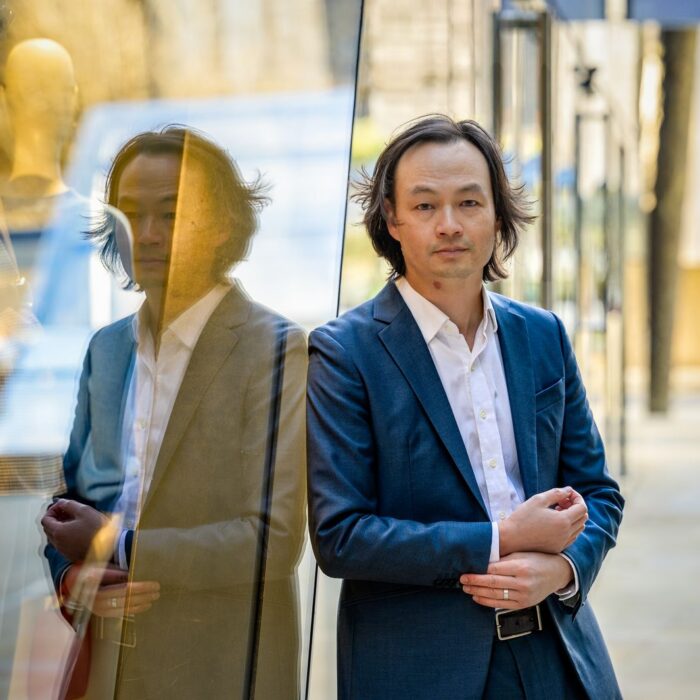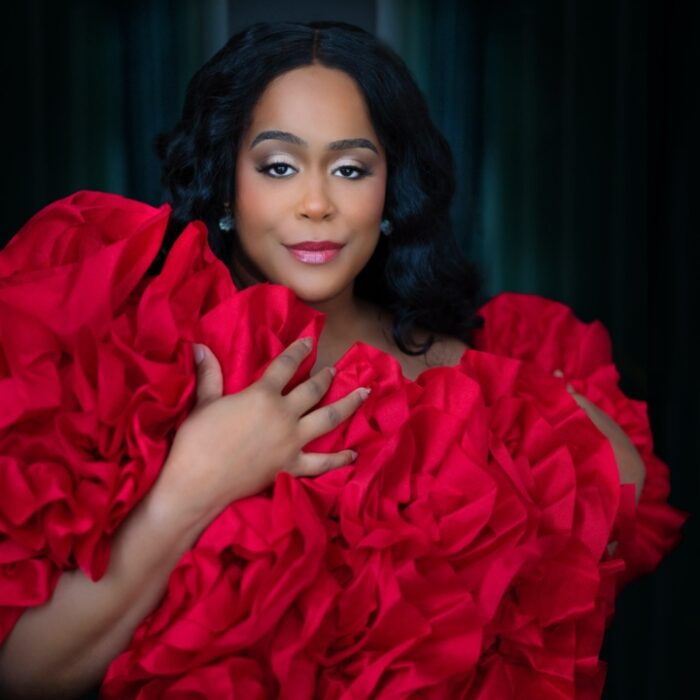
Q & A: French Contralto Delphine Galou On Her Love Of Singing Baroque
By Alan Neilson(Photo: Giulia Papetti)
Last summer, the Vivaldi Edition, devoted to recording the entire Foà and Giordano Collection of nearly 450 Vivaldi manuscripts, released two recordings. Both discs, one of sacred music and the other of secular music, are for the contralto voice. The soloist on both discs is Delphine Galou, the French baroque specialist whose distinctive voice has drawn high praise from many critics.
The two discs are but the latest additions to her extensive discography, which includes recitals, operas and religious music. Anyone with an interest in baroque music cannot fail to be aware of her high-profile presence not just on disc, but also on the opera stage and in concert halls around Europe.
At present, she is in the middle of a series of concert performances of Vivaldi’s opera “Giustina,” which is being conducted by Ottavio Dantone, with whom she has worked closely on all her musical projects (it is not really much of a surprise, as he is also her husband).
Even though she has a busy working schedule, she recently took time to talk to OperaWire about her career and the important role that singing the music of the baroque plays in her life.
OperaWire: Was it always your ambition to become an opera singer?
Delphine Galou: Although I applied unsuccessfully for the conservatoire when I was very young, I never really wanted to be an opera singer. I studied music privately and I have always liked singing, but really I wanted to teach philosophy.
I only started taking singing lessons when I was 18. I was fortunate enough to have a good singing teacher, who was a very honest and wise woman, she never promised me anything, and just advised me to give it a try. She also taught me how to handle my voice so that it would last over the years, which I am very grateful for. When it came to choosing between music and philosophy, I just thought I would try singing for a bit and see what happens!
OW: You specialize in the baroque repertoire, and it is something you obviously enjoy. Do you wish to broaden your repertoire into other areas?
DG: I love the baroque, especially the sacred music, and have no plans or ambitions to move outside this repertoire. I feel at home here. Being a contralto, it also provides me with many opportunities in a variety of roles, thanks to the amount of material written for castrati, which I mainly sing. Obviously, this means singing male roles, which at the beginning was difficult.
I used to spend time watching the physical movements of men, how they walk, stand and behave in general, so that I now feel comfortable in a male role, it has become almost natural. Recently in Zurich I played the part of Ottone in “L’incoronazione di Poppea,” and they had me dressed with a moustache and even something to create a bulge in my trousers, that even friends did not recognize me, and it worked so well, it improved the impression of me as a man, it was more natural.
Also, I think that all women have a male side to their nature, and playing theses roles allows me to explore this side of myself.
OW: You are married to the conductor Ottavio Dantone, with whom you work extensively. Is it easy to combine your family and professional relationships?
DG: From the beginning I was always impressed by Ottavio’s musicality and erudition. I remember the first times I sang with him, my feeling was that everything seemed easy and natural. It was like magic! Then we fell in love and got married. Love added music is the perfect combination for happiness!
Of course, it is a complex relationship; we rehearse a lot at home, and they can be very tough. Ottavio is very demanding, and he is right to be so. He knows my voice so well, my personality, my capabilities and how I will react, so he knows how far to push me. Even in rehearsals in the theatre he is much harder with me than other singers, because he knows exactly what I can do, and makes sure I do it.
Occasionally, I sing with other conductors, but I still work with him on the role. We always work together, and he writes the variations for the parts I sing. It is close and successful relationship!
OW: You recently recorded two Vivaldi discs on the Naive label, “Arie e cantante per contralto” and “Musica sacra per alto.” What was the motivation behind the creation of these discs?
DG: It is marvelous to be part of Naïve’s Vivaldi project, which aims to record all Vivaldi’s work. It is the first time a label has been dedicated to a single composer, and I really love Vivaldi’s music. These two discs represent all that remained to be recorded for the contralto voice. We didn’t chose any of the pieces, but we did our best to make them ours with all our heart! It was like a patchwork and it was very interesting to give each of them an identity, as there is no thematic link between them.
Of the two, my favorite one is probably “Musica sacra per alto.” I have a special affinity with sacred music and find peace singing it.
OW: Can you describe your voice, and your relationship to it?
DG: People say they can recognize my voice immediately if they hear me on radio, without knowing it is me singing. I think I have a particular voice; it is not a powerful voice, but it is expressive. The best compliment anyone can give me is to say that I have touched them in some way.
OW: How do you prepare for a role?
DG: It is very important for me to understand the role and why I behave as I do. Therefore the first thing I do is to read the story carefully, and try to find find things within me which echoes the character. This can be an interesting experience, particularly when it is a male role.
As I have already said, I believe within the female there exists a part that is male, and I therefore need to find these aspects of my personality which reflect the character. Then I work extensively with Ottavio on the music, who also writes the variations for me.
DG: You are currently playing the role of Giustino in Vivaldi’s opera of the same name. Have you been happy with role, and with the performance?
DG: I love Giustino, his condition and his personality. He’s a peasant and has only his values such as honour, courage and strength to succeed, and he makes it! It’s like saying “if you really want something, you can go for it, and life will smile at you!” The music is gorgeous and I’m the luckiest singer in the world to have the aria with a psaltery!
We recently performed “Giustino” at the Enescu Festival in Bucharest, which was scheduled to start at midnight, the last in the a series of five concerts during the day. After a discussion we managed to get it changed so that it started at 10:30, but it still did not finish until around 2:00 in the morning. The concert went very well, and we were very pleased with it.
OW: What are your future plans and ambitions?
DG: I have two further recordings scheduled for the Vivaldi Edition: “Argippo” with Fabio Biondi and Europa Galante, and “Bajazet” with Ottavio Dantone and Accademia Bizantina. I also have a planned series of concerts to promote my new Vivaldi recital discs. Of course, there is also concert performances planned for “Agitata,” a 2017 disc, featuring sacred music by lesser known Italian composers, such as Porpora and Jommelli, which I really love.
Then there are two staged productions: “Alcina” at Dresden’s Semperoper and “L’Incoronazione di Poppea” in Paris. So I have a lot of work at present, which is great. I really want to go on singing as long as possible.
Also there is teaching; recently I gave a masterclass in Cremona, and to be honest, it took a lot of convincing to get me to do it because I did not think I would have much to say, but that was not the case and I loved every minute of it. In the future, it is something that I would like to develop, but finding the time will be difficult.
OW: You speak so enthusiastically about your career. Are there any negatives?
DG: Not really. I gain so much pleasure from my singing, and knowing that so many people support me, and follow me. Many people write to me to say they enjoy listening to my music, which is especially rewarding and gives me strength, positivity and fills me with with enthusiasm.
Of course, owing to all my traveling and singing commitments I sometimes miss my family, my husband, my children, but thankfully they understand and don’t judge me, at least not too much. However, I admit I would love to sit down with them for diner more often.




